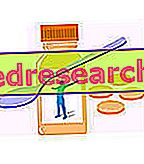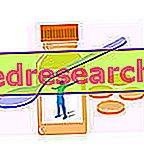
What is Savene?
Savene is a powder to be diluted to obtain a solution for infusion (drip into a vein). Savene contains the active substance dexrazoxane.
What is Savene used for?
Savene is used for the treatment of extravasations caused by some specific anticancer medicines known as "anthracicline". Extravasation can occur when an anticancer medicine, usually given intravenously, escapes or is accidentally injected into the surrounding tissue, where it can cause serious damage.
Since the number of patients reporting extravasation due to anthracycline is small, this condition is considered rare; on 19 September 2001 Savene was therefore designated an "orphan medicine" (a medicine used in rare diseases).
The medicine can only be obtained with a prescription.
How is Savene used?
Savene should be used under the supervision of a doctor experienced in the use of anticancer medicines.
The medicine is given by infusion in doses calculated based on the patient's body surface area. The first infusion (1, 000 mg / m2) is administered as soon as possible and, in any case, no later than the first six hours after the event. Two additional infusions are administered, respectively, the second (1, 000 mg / m2) and the third day (500 mg / m2), at the same time as the first infusion. The infusion lasts 1 or 2 hours and is carried out in a different site than the one affected by the extravasation.
How does Savene work?
The active ingredient in Savene, dexrazoxane, is an antidote to anthracycline. Its modes of action are not yet fully known; however, it is possible to see a connection with the way of binding to the iron present in the body (chelation) and with its effect on some enzymes (topoisomerase II). Dexrazoxane has been used as a medicine since the 1990s in the prevention of cardiomyopathy (heart muscle disease), in association with anthracycline therapy.
What studies have been carried out on Savene?
The effects of Savene were first tested in experimental models before being studied in humans.
Two studies were performed on the efficacy of Savene, which involved a total of 80 patients with extravasation due to anthracyclines such as epirubicin or doxorubicin. Savene has not been compared with another medicine (uncontrolled studies). In the studies the number of patients for whom it was necessary to resort to surgery to repair the damage caused by extravasation was recorded.
What benefit has Savene shown during the studies?
Among the 54 subjects in which the medicine proved to be effective, there was one patient who reported tissue damage that required surgery.
What are the risks associated with Savene?
The most common side effects with Savene (seen in more than 1 patient in 10) are nausea and pain and infection at the injection site. The patient may have a reduction in white blood cells and red blood cells, due in part to chemotherapy and partly to Savene, since the medicine is cytotoxic (ie it has a damaging effect on the cells in the process of multiplication) and can have consequences at the level of spinal cord. Patients should therefore be monitored before, during and after treatment. For the full list of all side effects reported with Savene, see the Package Leaflet.
Savene should not be used in patients who are hypersensitive (allergic) to dexrazoxane or any of the other substances, in women of child-bearing potential who do not use contraception or who are breast-feeding, and in patients who are given the yellow fever vaccine . Special care is needed with Savene when live virus vaccines are given to the patient.
Once diluted, Savene contains potassium and sodium: this fact must be taken into consideration if the drug is administered to patients in whom the concentration of these substances in the blood must be kept under control.
Why was Savene approved?
Anthracycline extravasation is a condition that can currently be treated by different methods, but for which there is no standard authorized treatment. The Committee for Medicinal Products for Human Use (CHMP) concluded that Savene has been shown to be effective in the treatment of anthracycline extravasation, allowing patients to continue chemotherapy. The CHMP decided that Savene's benefits are greater than its risks and therefore recommended that it be given marketing authorization.
More information on Savene:
On 28 July 2006 the European Commission issued a marketing authorization for TeneTarget A / S for Savene, valid throughout the European Union.
Registration of Savene as an orphan medicine is available here
For the full version of the assessment (EPAR) of Savene click here.
Last update of this summary: 06-2006.



